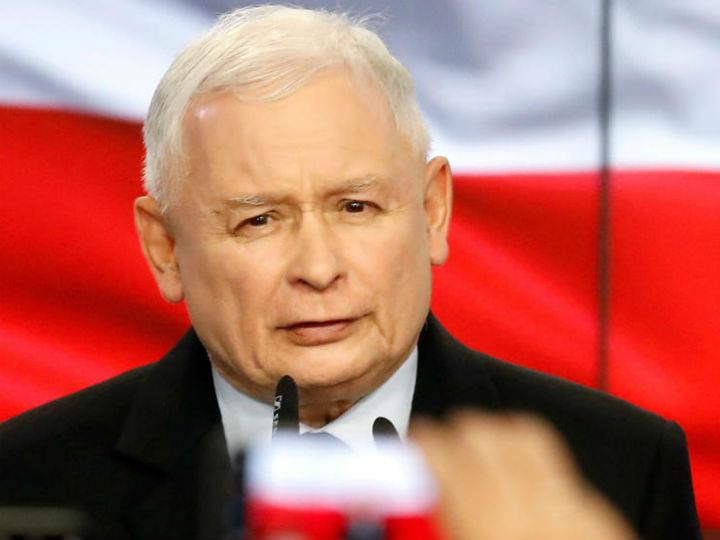by Wojciech Przybylski and Edit Zgut*
After nine years of power consolidation by the ruling Fidesz party, the Hungarian opposition parties united behind a single strong candidate that had a chance to defeat the incumbent mayor of the capital.
Despite the fact that Fidesz abused all of its institutional and informal power to hinder the opposition to succeed, Istanbul arrived to Budapest: not only the lord mayor position was overtaken by Gergely Karacsony – the joint candidate – the opposition will be able to secure a majority in the Budapest council as well.
The strategic cooperation between opposition parties obviously was rewarded by the voters, but merged with the “butterfly effect” of the sex, drugs and corruption scandal in Gyor that erupted at the very last stage of the electoral campaign.
Even though it is too early to measure the actual impact of this scandal on voting attitudes, it also might have had a galvanising effect to the extent that the usually well-functioning communication of Fidesz practically collapsed just before the elections.
Since smaller towns and villages have remained under the control of the dominant party, the urban-rural divide is even more evident than before.
Different ball game
Meanwhile, on the same day, in Poland the Law and Justice (PiS) party secured a majority in the Sejm (lower chamber) winning 235 mandates out of 460, exactly the same amount as in 2015. However, it is now officially three seats short of a majority in the Senate. Jaroslaw Kaczynski and many party members seemed disappointed because they were counting on more than 260 seats which would allow internal party reshuffling as well building a potential technical coalition to amend the constitution.
This constitutional change will be a whole different ball game for PiS, because of two main reasons. Firstly, in contrast to the extremely centralised Fidesz party, the Polish government has been embodied by three different blocks: PiS, under the leadership of Prime Minister Mateusz Morawiecki, Solidarity Poland, led by incumbent Minister of Justice Zbigniew Ziobro and Alliance, led by Minister of Science Jaroslaw Gowin.
Given that the coalition partners of PiS won a similar number of votes, it keeps the party on the edge with no definite direction about its future leadership. With bulldog fights under the carpet, any spark such as leaked tapes or another scandal could change the internal dynamism within the government, where two new-generation strongmen, Morawiecki and Ziobro, would gladly dismiss one another.
A second issue for PiS is the majority in the Senate, which will have significant implications for its ability to rush bills through the parliament. It yet may try to lure some senators.
Despite the fact that having a majority in the upper house does not allow for blocking the legislative process in the Sejm, the opposition could slow down the system-transformation efforts of PiS.
Apart from its symbolic importance to end the government’s majority, the Senate can nominate two members of the National Council of the Judiciary; it has also representatives in the Monetary Policy Council or the National Broadcasting Council, but also decides on referendums. Most importantly, the Senate has to approve any constitutional amendments.
What is next in Hungary?
What we have learned so far is that shifting into a less combative mood is not in the nature of these regimes. Even though Viktor Orban has stressed right after the elections that the government will cooperate with Budapest and the oppositional towns, the tone already had changed by Monday morning.
While the governmental representatives started to blame foreigners living in Budapest and casting a ballot for their defeat, pro-governmental mouthpieces claimed that “patriotism” was defeated in the capital.
Furthermore, the Hungarian government is likely to revisit the constitution for the eighth time, which would mean that the system could shift towards an even more centralised, authoritarian direction.
Within the currently existing power structure, which has been characterized as vertically coordinated and based on a hierarchical command system, by Janos Kornai, there are hardly any institutions or dominant groups capable of vetoing governmental resolutions without Orban’s approval anyway.
Further centralisation provides more ground for crony capitalism to flourish as well. Compared to the classic case of oligarchic state capture in the Czech Republic, this is a reverse-engineered “state capture” where a very strong, centralised administration is deliberately cooperating with business circles to establish a complex, systemic corruption scheme, which is increasingly dependent on Orban and his family.
There especially is a high risk in those sectors where the state can intervene directly through special taxes or indirectly through regulation and procurement such as IT and media, energy, banking or retail sector.
Electoral race continues in Poland
Jaroslaw Kaczynski, Poland’s de facto leader was even more straightforward on Sunday, claiming that the country must change further, which could result in further systemic restrictions regarding the judiciary and the media.
During the campaign, PiS proposed a law to establish a new self-regulatory body for the media with enough power to restrict independent journalists. They would also suspend parliamentary immunity, stating that Polish MPs should be detained at the request of the prosecutor general, currently Justice Minister Zbigniew Ziobro.
But more importantly, PiS will complete its “judiciary reform” and reorganise the courts, thereby overcoming what Kaczynski calls “the last barrier”. In April 2020 it will nominate the new President of the Supreme Court and, with a new law already in place, the parliament will elect a new electoral commission. At the EU, this will shift the debate on the rule of law in Poland into a higher gear.
*the editor-in-chief of Visegrad Insight magazine and chairman of the Res Publica foundation, as well as the editor-in-chief of its magazine and Hungarian Political scientist, foreign policy analyst at Political Capital
**first published in: voxeurop.eu




 By: N. Peter Kramer
By: N. Peter Kramer
